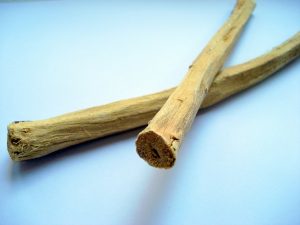A recent Finnish study suggests that children with mothers who have licorice during pregnancy bear more risk of cognitive and behavioral problems. It came out to be quite shocking since licorice has been widely used as ingredients in drinks, food and herbal medicine. One 2006 study assumes that the average glycyrrhizin (a natural sweetener in licorice root) consumption per person in the U.S. fluctuates from 1.85 mg to 205 mg one day.

However, do we really need to worry about this?
378 children born in Helsinki in 1998 entered this study. They were divided into two groups based on glycyrrhizin consumption of their mother during pregnancy. 327 of them consume the amount of no licorice or within 500 milligrams per week in the uterus, the other had more than 500mg a week, American Journal of Epidemiology reported. Women were tested on their glycyrrhizin consumption after childbirth. Children were quizzed on their developmental issues when they about to start puberty.
It turned out that mothers who had more than 500 milligrams of licorice per week, compared to another 327 who consume less or even no licorice at all, their kids had poorer performance on intelligence, memory and attention tests. Kids exposed to less licorice scored more than 7 age-standardized points higher for general, performance and verbal IQ and also appeared to be better on memory and verbal productivity tests. "Our tests therefore suggest that getting away from licorice or any food products that have glycyrrhizin during pregnancy would be a wise choice," Raikkonen said.
Katherine, a public health researcher at Columbia University Medical Center in New York clearly holds different opinions. “Not all licorice contains a lot of glycyrrhizin. There are more dangerous things, such as alcohol and smoking. Compared to licorice, they are way more dangerous enemy for young mothers.” Katherine said,” The science about licorice so far is still not clear.”
There have been many doubts around this study. Some scientists questioned the authority and representativeness of such small samples it based on. Other people held that many factors could influence the baby other than licorice. Since this study is not a controlled experiment, these mothers could have been exposed to radiation, alcohol, drugs, which affects much more than licorice.
"Women are faced with so many things during pregnancy they can't do about because it's too much," Katherine added. "Focusing on tobacco and alcohol is the most important, and focusing on other things like licorice is less important."

